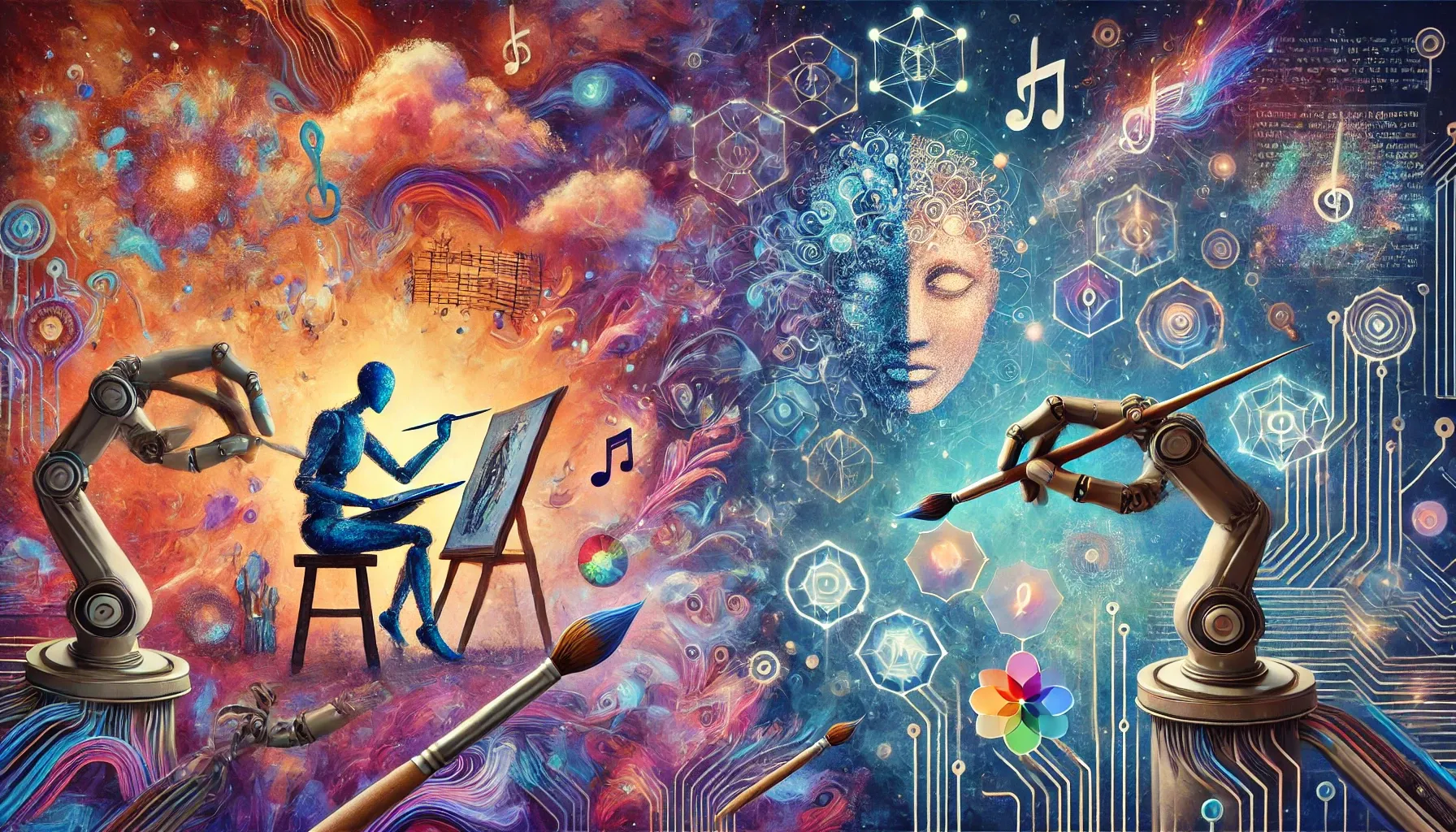In the ever-evolving landscape of technology, artificial intelligence has ventured into territories once thought to be exclusively human: the realm of creativity. From brushstrokes to musical notes, and from poetry to prose, AI is making its mark in the art world. But can machines truly be artists? Let's dive into this fascinating intersection of silicon and inspiration.
AI in Visual Arts: Pixels and Paintbrushes
The visual arts have seen a revolution with the advent of AI-powered tools. Platforms like DALL-E, Midjourney, and Artbreeder are pushing the boundaries of what's possible in digital art creation.
The AI Artist's Toolkit
- DALL-E: OpenAI's DALL-E generates images from text descriptions, creating everything from photorealistic images to surreal compositions.
- Midjourney: This AI tool creates stunning, dreamlike images from text prompts, often with a unique artistic flair.
- Artbreeder: Allows users to blend and evolve images, creating new artworks through AI-driven genetic algorithms.
These tools are not just creating art; they're challenging our perceptions of creativity and authorship. When an AI generates a masterpiece, who is the true artist? The machine, the programmer, or the person who wrote the prompt?
AI in Music: Algorithmic Symphonies
The world of music hasn't been left untouched by the AI revolution. From composition to production, AI is striking new chords in the industry.
Composing with Code
- OpenAI's MuseNet: Can generate 4-minute musical compositions with 10 different instruments.
- AIVA (Artificial Intelligence Virtual Artist): Composes emotional soundtrack music for films, video games, and commercials.
These AI composers are not just mimicking human-created music; they're creating original compositions that can evoke genuine emotions. But can a machine truly understand the emotional depth of a melody it creates?
AI in Writing: The Pen is Mightier Than the Algorithm?
From poetry to prose, AI is making its mark in the world of words.
The AI Author's Arsenal
- GPT-3: Can generate human-like text on almost any topic, from short stories to technical articles.
- Jasper: An AI writing assistant that helps create marketing copy, blog posts, and more.
While these tools are impressive, they raise questions about the future of writing. Will AI replace human writers, or will it become a powerful tool in the writer's arsenal?
The Great Debate: Can Machines Truly Be Creative?
The question at the heart of this discussion is philosophical as much as it is technological. Can creativity exist without consciousness? Are machines simply very good at mimicking human creativity, or are they capable of true originality?
Arguments For Machine Creativity
- AI can create works that are indistinguishable from human-created art.
- Machines can generate truly novel combinations and ideas that humans might not conceive.
Arguments Against Machine Creativity
- Machines lack the emotional and experiential context that often drives human creativity.
- AI creations are ultimately based on human-created data and algorithms.
Real-World Applications: When AI Meets Human Creativity
Despite the ongoing debate, AI is already making significant contributions to creative fields:
- Film and Animation: AI is being used to generate special effects and even entire animated sequences.
- Fashion Design: AI tools are helping designers create new patterns and styles.
- Game Development: AI is creating dynamic, ever-changing game environments and storylines.
The Future Canvas: Human and AI Collaboration
As we look to the future, it seems likely that the most exciting developments will come not from AI alone, but from the collaboration between human and machine creativity. Imagine a world where:
- Artists use AI to push their creative boundaries and explore new styles.
- Musicians collaborate with AI to create genre-defying compositions.
- Writers use AI as a brainstorming partner, generating ideas and plot twists.
Conclusion: The Art of the Possible
While the debate about whether machines can truly be artists will likely continue, one thing is clear: AI is revolutionizing the creative landscape. It's challenging our notions of creativity, pushing the boundaries of what's possible, and opening up new avenues for human expression. As we stand at this exciting intersection of technology and creativity, perhaps the most important question isn't whether machines can be artists, but how we can harness this new technology to enhance and expand human creativity. The canvas of the future is vast, and the palette includes both human inspiration and machine intelligence. What masterpieces will we create together?
